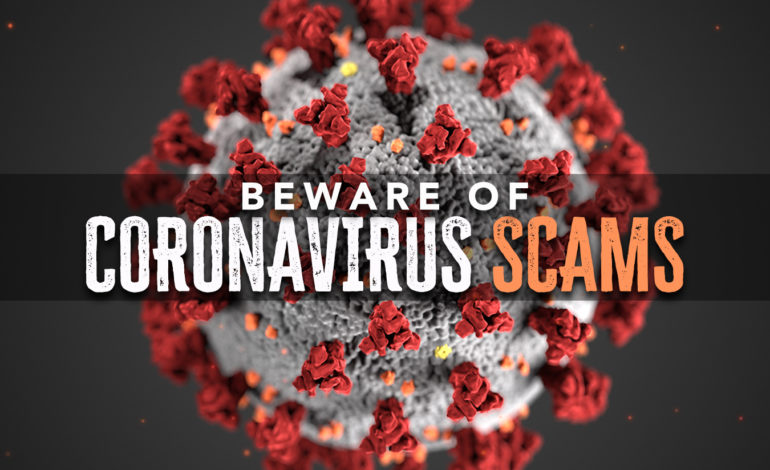I know, 60-year-olds. You’re not old. In fact, we’ve found that, when people think “old”, they think of someone about 10 years older than they are right now. But, because we’ve been warned about the effects of the Coronavirus on people 60+, listen up. Because scammers follow the headlines and know you might have this on your mind.
Right now, scammers are scuttling out of their dark corners to offer false hope (Home test kits! A cure!) and use fear (Your Social Security number is about to be revoked! Your loved one is in trouble!) – all to get your money or information (None of those things are real, by the way). They’re asking for your bank routing number to “help” you get your relief money – which is not how you’ll get it, by the way. They’re sending fake emails that look real, but those fake CDC or World Health Organization emails are trying to steal your personal information – or, if you click a link, put malware on your computer, tablet or phone. Scammers are calling (and calling…and calling…), using illegal robocalls to pitch you the latest scammy thing. They’re texting and they’re all over social media.
So, while you’re washing your hands and working to stay safe, here are a few ways you can help protect yourself – and those you love – from scammers.
- Don’t be rushed. Whatever the call, email, text or social media post is about, remember that scammers try to rush you. Legit people don’t.
- Check it out. Before you act on something or share it – stop. Do some research. Do the facts back up the story?
- Pass it on. If you get offered something great or you’re worried about something alarming, talk to someone you trust before you act. What do they think?
- Keep in touch with the FTC. Sign up for Consumer Alerts to help spot scams: ftc.gov/subscribe. And watch for the latest at ftc.gov/coronavirus.
- Report scams to the FTC. Go to ftc.gov/complaint. Your report can help us shut the scammers down.
Want to help even more? Pass this post on. Tell a friend. And hey, let’s be careful out there.






Leave a Reply